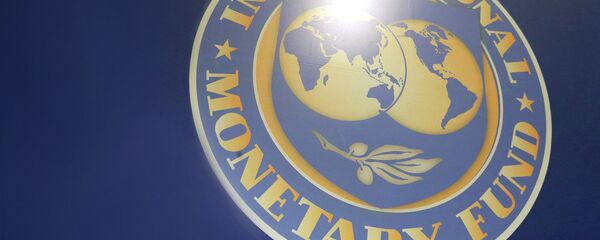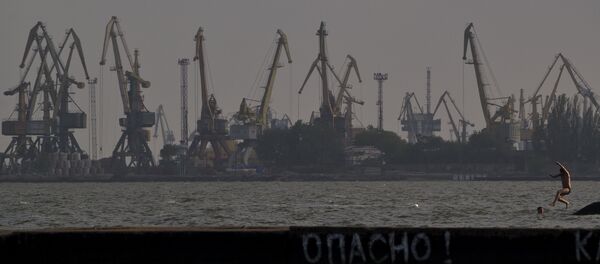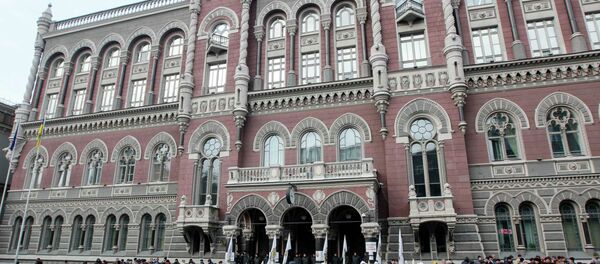In an article which appeared Tuesday on Ukraine's Ukrainskaya Pravda news website, van Rooden blamed Ukrainian authorities for having "delayed discussion of pension system reforms for too long."
The official stressed that the pension system is operating at a loss, and is a major burden on Ukraine's budget, as it supports nearly a third of Ukraine's population. The system needs reform, and "urgently," van Rooden noted, adding that the reform package proposed by the Ukrainian government fails to meet existing challenges.
"Ukrainians retire much earlier than workers in other countries in this part of the world," the IMF mission chief noted, and averages about five years earlier than workers in EU countries.
Commenting on van Rooden's piece on in a Facebook post which seems to have since been edited, Deputy Prime Minister Rozenko slammed the mission chief, accusing him of "terrible unprofessionalism" and saying that "this person simply doesn't understand how [the pension system] works."
As for van Rooden's remark that the basic structure of Ukraine's pension system had not changed since Soviet times, Rozenko suggested that he had lost "any desire to read this nonsense to the end" after that point.
In a separate commentary for Ukraine's Espreso.tv, Rozenko suggested that when van Rooden was comparing average retirement age, he should have also taken into account that Ukrainian life expectancy is about 10 years lower than it is in EU countries.
"The IMF's proposals are standard, but not all countries can accept them," the analyst explained. "It seems that Kiev understands that raising the retirement age in the current unstable climate might turn out to be very costly."
On the other hand, Zhuravlev suggested that this puts Ukraine in a tough spot, because the IMF has the power to withhold its promised loan tranches, which are crucial to the country's financial and economic stability.
"When almost a third of the population are pensioners living on benefits, this is really too much even for a normal economy. And the Ukrainian economy is now in a crisis, meaning they could puff out their cheeks [on the issue] for a long time," the commentator noted.
"I think the reaction of the deputy prime minister is hysterical. On the one hand, authorities already have very weak support among the population. On the other hand, they find the need to argue with those who feed them. There's no good outcome to be had here…If they agree with the IMF's recommendations, then tomorrow the streets will be filled with all 12 million Ukrainian pensioners. If they don't agree, they'll have nothing with which to pay their debts."
Earlier this month, Prime Minister Volodymyr Groysman told the Financial Times that he was confident Ukrainians would soon start to experience the benefits of the ongoing reforms sponsored by the IMF.
Also this month, the IMF indicated that it could disburse another $4.4 billion in loans to Ukraine if Kiev delivers on its reform commitments. At the beginning of the month, the Fund granted the Ukraine its fourth tranche, totaling $1 billion, as part of a $17.5 billion loan package, which requires the country to implement of major economic reforms, including major cuts to a broad range of government programs and subsidies.





